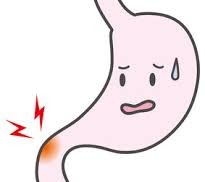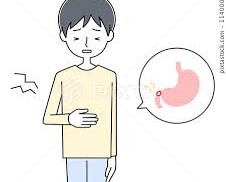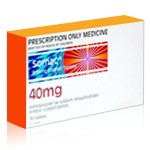Understanding Duodenal Ulcers: Causes, Symptoms, and Solutions


What Is a Duodenal Ulcer and Why Does It Happen?
Have you ever felt a burning pain in your upper stomach that gets worse a few hours after eating? This could be a sign of a duodenal ulcer. A duodenal ulcer is a sore that forms inside the beginning part of the small intestine, just after the stomach. It happens when the lining of the intestine gets damaged by stomach acid.
Why do these ulcers happen?
- Too much acid in the stomach
- A type of bacteria called Helicobacter pylori
- Use of certain pain-relief medicines like aspirin or ibuprofen
- Stress and poor diet (these can make it worse but don’t directly cause it)
- Smoking and alcohol use
The lining of the small intestine is supposed to protect itself, but when this balance is disturbed, an ulcer can form. It is important to understand the causes to prevent the problem from getting worse.
Signs and Symptoms to Watch Out For
Many people with a duodenal ulcer feel a strong or burning pain between the belly and chest. The pain often comes and goes and may feel better after eating but returns a few hours later.
Common symptoms include:
- Burning stomach pain
- Bloating or feeling full easily
- Nausea or upset stomach
- Loss of appetite
- Weight loss without trying
- Pain that wakes you up at night
If the ulcer becomes severe, it may bleed, which can lead to vomiting blood or black stools. These signs need medical attention right away.
What Causes the Lining to Break Down?
The stomach makes acid to help digest food, but this acid can be harmful if it touches unprotected areas. The duodenum usually has a protective lining to stop this, but sometimes that lining becomes weak.
Main reasons the lining gets damaged:
- Infection from Helicobacter pylori
- Regular use of strong pain relievers
- Smoking and drinking alcohol
- High levels of stress over time
- Eating very spicy or acidic foods often
When these factors weaken the protective lining, acid can create an open sore, or ulcer, which causes pain and discomfort.
When Should You See a Doctor?
It can be tempting to ignore stomach pain, thinking it's something minor, but certain signs should not be overlooked. An untreated duodenal ulcer can lead to serious problems.
You should visit a doctor if:
- You feel stomach pain often
- Your pain gets worse at night or when you are hungry
- You feel weak or tired for no reason
- You notice black or tar-like stools
- You start vomiting or notice blood in your vomit
Seeing a doctor early can help prevent complications and start the right treatment sooner.
Lifestyle Habits That Help Healing
While medicines can help, changing some habits also plays a big part in healing. Taking care of your body and reducing stress can support your recovery and stop new ulcers from forming.
Helpful habits include:
- Eating smaller meals more often
- Avoiding alcohol and tobacco
- Reducing stress with rest, gentle exercise, or relaxation
- Staying away from very spicy or acidic foods
- Not using pain-relief pills unless advised by a doctor
These small changes can make a big difference in how fast your ulcer heals and how well your stomach works in the long term.
Medications That Can Help: Focus on Protonix (Pantoprazole)
If you have a duodenal ulcer, your doctor may recommend medicines to reduce stomach acid. One common and effective option is Protonix, which contains the active ingredient Pantoprazole. This medicine works by lowering the amount of acid your stomach makes, giving the ulcer a chance to heal.
Benefits of using Protonix:
- Helps relieve burning pain and discomfort
- Protects the duodenum from further damage
- Supports healing of the sore inside the small intestine
- Makes it easier to eat without pain
- Can be used along with other treatments if needed
Pantoprazole is usually taken once a day, and it starts working within a few days. However, it’s important to finish the full course even if symptoms go away early.
In some cases, your doctor might also give antibiotics if the ulcer is caused by Helicobacter pylori bacteria. These are used together with Protonix to treat both the ulcer and its cause. Always follow your doctor’s instructions carefully and let them know if you have any side effects.
Taking care of your digestive health is very important, especially when dealing with a duodenal ulcer. Understanding the causes and early signs helps you take action quickly. With the right combination of healthy habits, lifestyle changes, and proper treatment such as Protonix, most people recover well and avoid future ulcers.
Article Post: Editorial Team of RXShop.md
(Updated at Jul 12 / 2025)

